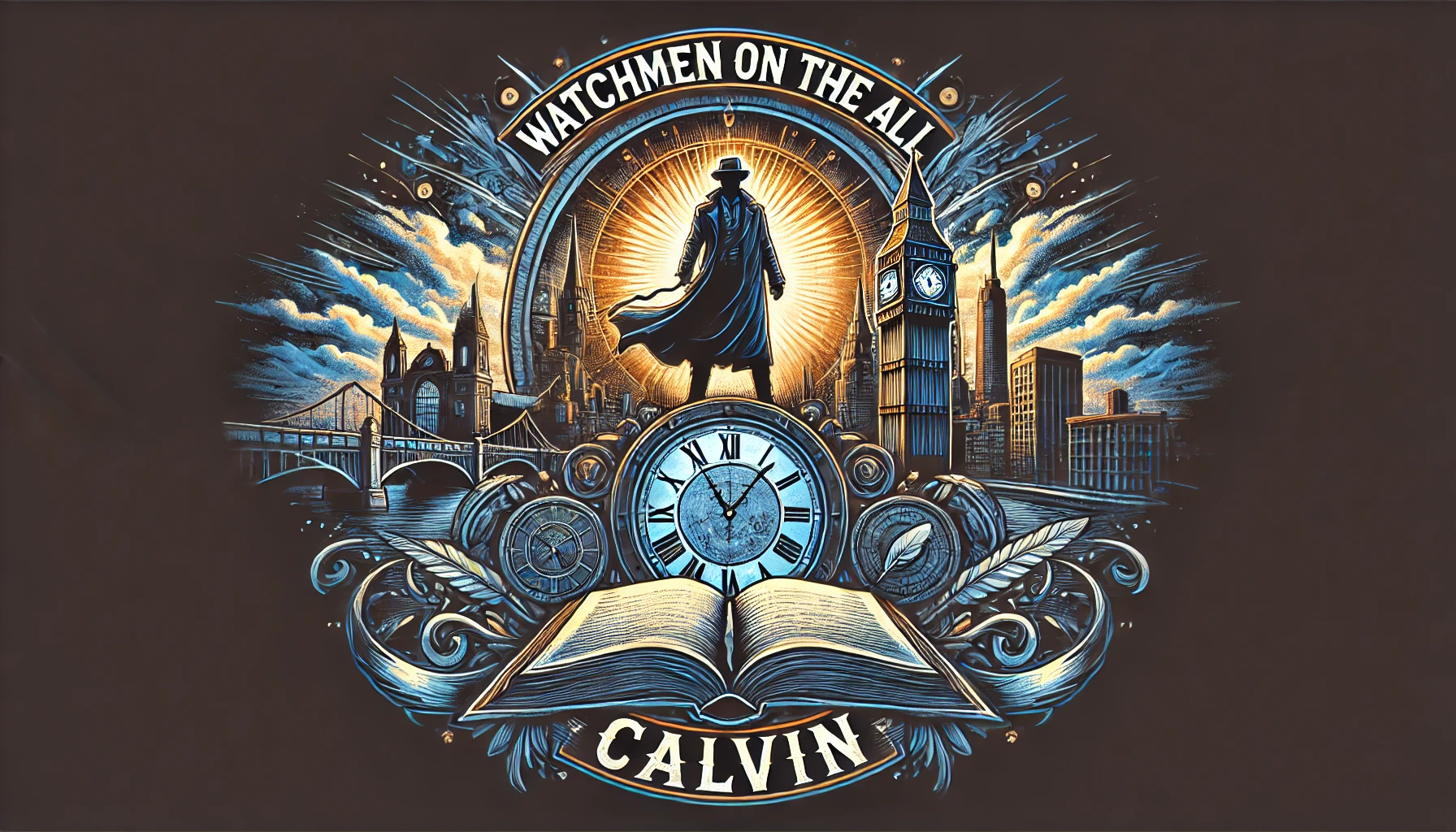Want a Complete Overview About WatchmenontheAll Calvin ?
WatchmenontheAll Calvin” offers profound insights into Calvinist theology, exploring divine providence, moral duty, and faith in action for modern readers.
When we explore the world of literature and philosophy, certain works transcend time, leaving an indelible mark on their audience. “WatchmenontheAll Calvin” is one such topic that has garnered intrigue and admiration. This article will delve deep into the essence of WatchmenontheAll Calvin, providing a thorough understanding for enthusiasts and curious minds alike.
What is WatchmenontheAll Calvin?
“WatchmenontheAll Calvin” combines theological insight with philosophical depth, offering a unique perspective on spirituality and human responsibility. Rooted in Calvinist thought, this work examines themes such as divine providence, moral duty, and the intricate relationship between humanity and God. Its appeal lies in its ability to address profound questions while remaining accessible to readers.
The Historical Context of Calvinism
To fully appreciate “WatchmenontheAll Calvin,” it’s essential to understand the historical backdrop of Calvinism. Named after John Calvin, a 16th-century French theologian, Calvinism emerged during the Protestant Reformation. Calvin emphasized God’s sovereignty, predestination, and the need for a disciplined Christian life. His teachings profoundly shaped religious thought across Europe and beyond, influencing many aspects of culture and governance.
Key tenets of Calvinism include:
- Total Depravity: Humanity’s inherent sinfulness and reliance on divine grace.
- Unconditional Election: God’s predestination of individuals for salvation.
- Perseverance of the Saints: The idea that those truly chosen by God will remain faithful until the end.
Understanding these principles provides valuable insight into the themes explored in “WatchmenontheAll Calvin.”
Exploring the Themes of WatchmenontheAll Calvin
1. Divine Providence and Human Responsibility
One of the central themes of “WatchmenontheAll Calvin” is the interplay between divine providence and human agency. The work challenges readers to consider how God’s overarching plan aligns with individual choices. It raises questions like:
- How much control do we truly have over our lives?
- Does divine will negate free will?
By addressing these questions, “WatchmenontheAll Calvin” encourages a balanced view of faith and personal accountability.
2. Moral Vigilance
The term “watchmen” suggests a role of guardianship and vigilance. In the context of Calvinism, this can be interpreted as the duty of Christians to remain morally steadfast and protect the spiritual well-being of their communities. The work offers practical guidance on how to navigate modern ethical dilemmas while staying true to foundational beliefs.
3. Faith in Action
Faith without action is incomplete, a sentiment echoed throughout “WatchmenontheAll Calvin.” Readers are urged to live out their faith through service, compassion, and advocacy for justice. This theme resonates deeply in contemporary discussions about the role of religion in addressing societal issues.
Why WatchmenontheAll Calvin Matters Today
In an era marked by uncertainty and moral relativism, “WatchmenontheAll Calvin” provides a steadying framework for individuals seeking clarity. Its emphasis on unwavering faith and ethical living offers timeless lessons applicable to today’s challenges.
The Relevance of Calvinist Ethics
Calvinist ethics emphasize discipline, hard work, and community responsibility—values that remain pertinent in addressing issues like inequality, climate change, and cultural polarization. By revisiting these principles, “WatchmenontheAll Calvin” bridges the gap between historical theology and modern activism.
Spiritual Resilience
In a world where faith often takes a backseat to materialism, “WatchmenontheAll Calvin” inspires readers to reconnect with their spiritual roots. Its call for vigilance and steadfastness resonates with those yearning for a deeper sense of purpose.
Practical Applications for Modern Readers
“WatchmenontheAll Calvin” is not just a theoretical exploration; it offers actionable insights for daily living. Here are some practical takeaways:
1. Cultivate Discipline
Adopt structured routines that align with your values. Whether it’s through prayer, meditation, or acts of service, consistency is key to spiritual growth.
2. Engage in Community Building
Be a watchman for your community by advocating for justice and supporting those in need. Volunteer at local organizations or participate in initiatives that promote equity and well-being.
3. Stay Informed and Reflective
Deepen your understanding of theological and philosophical ideas by engaging with related works. For instance, explore writings by John Calvin or contemporary interpretations of Calvinist thought. Websites like Christianity Today and Desiring God are excellent resources for further reading.
Addressing Common Misconceptions
Despite its profound insights, “WatchmenontheAll Calvin” has faced criticism and misunderstanding. Let’s address some of the common misconceptions:
1. Calvinism Promotes Fatalism
While Calvinism emphasizes predestination, it does not negate the importance of human effort. “WatchmenontheAll Calvin” reinforces the idea that individuals play an active role in fulfilling God’s plan.
2. It’s Too Theoretical
Critics argue that Calvinist works can be overly abstract. However, “WatchmenontheAll Calvin” balances deep theological discussions with practical applications, making it accessible to a broader audience.
Recommendations for Further Study
To gain a holistic understanding of the themes in “WatchmenontheAll Calvin,” consider exploring the following:
- Books by John Calvin: Start with Institutes of the Christian Religion for foundational knowledge.
- Modern Calvinist Thinkers: Authors like R.C. Sproul and Tim Keller offer contemporary perspectives on Calvinism.
- Historical Contexts: Read about the Protestant Reformation to understand the movement’s broader implications.
Conclusion
“WatchmenontheAll Calvin” is more than a theological work; it’s a call to action, a guide for moral living, and a source of spiritual nourishment. By engaging with its themes and applying its lessons, readers can cultivate a deeper connection to their faith and positively impact their communities.
Whether you’re a seasoned theologian or a curious newcomer, “WatchmenontheAll Calvin” offers a rich tapestry of ideas worth exploring. Embrace its teachings, and you’ll find not only answers to life’s profound questions but also a path toward purposeful living.





